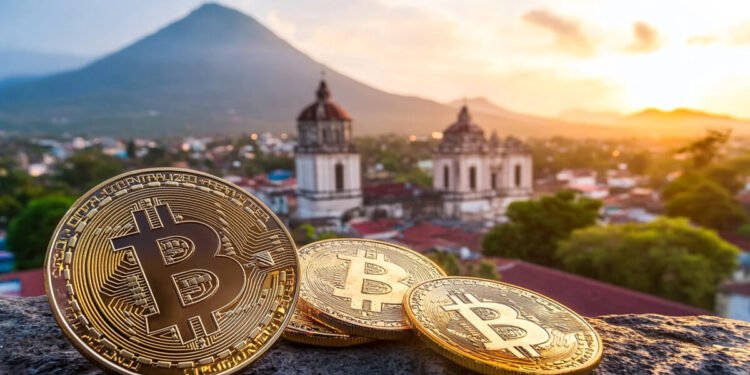El Salvador Secures $1.4 Billion IMF Funding with New Economic Strategy Post Bitcoin Reform
The International Monetary Fund (IMF) has approved a substantial Extended Fund Facility (EFF) assistance package for El Salvador, granting around $1.4 billion to boost economic growth and address macroeconomic discrepancies. This move follows the country’s recent adoption of critical policy changes, notably regarding its controversial Bitcoin venture.
An extensive 111-page IMF report emphasizes El Salvador’s efforts to incorporate Bitcoin within its economy, mentioning the term ‘Bitcoin’ a staggering 221 times. President Nayib Bukele is referenced merely eight times, while the U.S. dollar is mentioned 82 times, indicating a shift towards a more traditional financial approach.
Analysis on Bitcoin Policy Adjustments
The IMF’s Executive Board approval allows an initial disbursement of approximately $113 million, with additional support totaling over $3.5 billion throughout the program’s duration. This marks a significant revision to Bukele’s Bitcoin policy. Recent legislative changes have scaled back the Bitcoin Law, eliminating the mandate for private companies to accept Bitcoin and barring tax payments in the cryptocurrency.
Additionally, the IMF’s directives restrict government involvement in Bitcoin dealings, stressing that public entities should avoid acquiring Bitcoin through purchases or mining. The IMF underscores the importance of managing risks related to the Bitcoin initiative in line with its regulations, ensuring tax obligations are met solely in U.S. dollars.
Insight into Economic Restructuring
The IMF-backed program aims to revamp El Salvador’s economic landscape by addressing existing macroeconomic challenges. Officials hope to capitalize on recent advancements in security and fiscal reforms to bolster governance, transparency, and ultimately, economic resilience. The IMF’s statement anticipates a 3.5 percent of GDP improvement in El Salvador’s primary balance over three years, starting with rationalizing wage bills while safeguarding crucial social and infrastructure spending.
El Salvador’s recent economic progress can be largely attributed to significant security enhancements, leading to a considerable drop in homicide rates from some of the highest in the region to substantially lower levels. This decrease has boosted tourism and investments, contributing to economic growth.
Implications and Future Outlook
Despite recent economic improvements, the IMF warns that El Salvador still faces significant macroeconomic hurdles. The nation’s public debt stands at approximately 87 percent of GDP, with high interest payments straining fiscal resources. Low foreign reserves exacerbate vulnerabilities, particularly in a dollarized economy.
Market response to the IMF’s measures has been positive, with a notable decrease in sovereign bond spreads, falling from over 700 basis points in late 2023 to nearly 350 basis points pre-announcement. This decline indicates growing investor trust in El Salvador’s governance and policies.
The success of the approved program hinges on resolute political commitment and public support. The Bukele administration, backed by a strong electoral win, possesses a solid mandate with a majority in the assembly. The IMF highlights the need for decisive governance and adaptable policymaking to address potential risks, especially concerning dollarization.
However, President Bukele’s recent acquisition of 19 BTC just before the IMF announcement raises concerns about El Salvador’s future Bitcoin investments amid IMF restrictions. This poses crucial questions about the nation’s economic direction, as continued Bitcoin support could jeopardize international aid amounting to billions.
Conclusion
In essence, the IMF’s endorsement of a $1.4 billion financial package for El Salvador marks a critical juncture in the country’s economic path, particularly following recent Bitcoin-related policy changes. Focused on reinstating fiscal stability and regulatory oversight, the agreement paves the way for potential economic recovery. The evolving relationship between El Salvador and Bitcoin will be vital, as the nation’s economic future may hinge on balancing innovative cryptocurrency ventures with adherence to international economic norms and supports.








